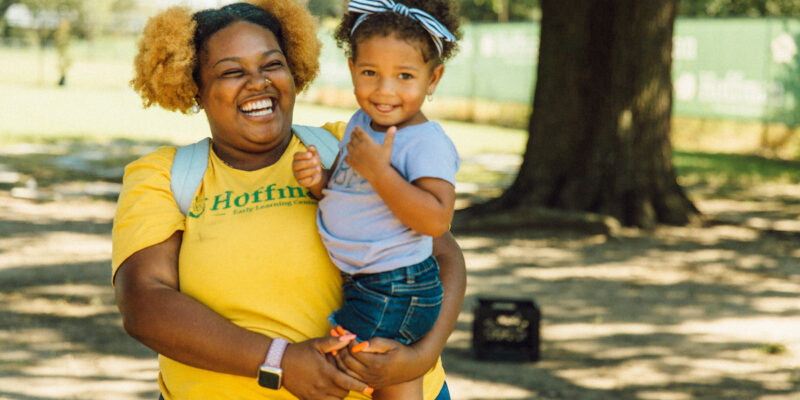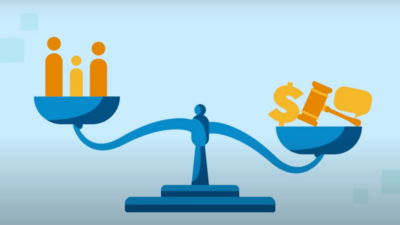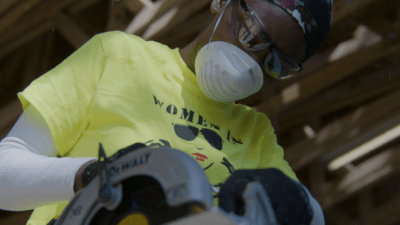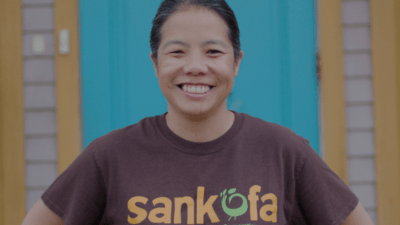At the 2021 CDFI Institute virtual conference, the W.K. Kellogg Foundation’s Felicia DeHaney joined an esteemed panel to discuss how Community Development Financial Institutions (CDFIs) can apply a racial equity lens to the education and child care sector. DeHaney, WKKF’s director of program and strategy, discussed the economic opportunity to increase access to capital by driving a racial equity lens. In her own words:
At the W.K. Kellogg Foundation (WKKF), we focus on a systems-change approach to racial equity to achieve long-term, sustainable, positive outcomes in early childhood, for a child’s health and well-being and family economic security. We ground all this in our DNA of racial equity, community engagement and leadership.
The Kellogg Foundation is unapologetic around its focus on racial equity. From our inception, we have been intentional about advancing racial and economic equity, both in our internal practices, as well as in our grant making. And we know, and studies have clearly stated and the pandemic has underscored, that the opportunity costs for racial inequity are too great to ignore.
While difficult, the pandemic has given us a more accurate vision for the world and its systems of historical injustices, racial and social unrest, and a broken economy. These are the same systems in which we expect our children, our families and our communities to thrive.
Part of these systems are community development financial institutions (CDFIs) –which have been an important financing tool for the last 25+ years and ensure communities have access to affordable financing to launch business and foster growth, particularly in communities of color. Which is why the Kellogg Foundation has a long history of investing in CDFIs. We know that access to capital builds businesses, builds family wealth and promotes opportunity across whole communities.
Yet, the fact is, many CDFIs don’t focus explicitly on small child care businesses, which tend to serve and be staffed by people of color. There’s an economic opportunity for more CDFIs to engage more deeply with the early childhood field and its small businesses.
There’s an economic opportunity for more CDFIs to engage more deeply with the early childhood field and its small businesses.
The Economic Opportunity in Early Care
Women of color make up 40% of the early childhood workforce and receive the most poverty-level wages in their profession. At present, 60% of their businesses are closing or reducing their capacity. And although they were not considered essential workers in most states, they are essential workers and oftentimes the safety net for so many families.
These early childhood businesses, including family homes and centers, are Black and Brown owned and often sole proprietors. And they lack access to capital. Historically many of these small businesses of color don’t have access to commercial banking. The markets are just not open to them because of bias in lending, structural racism or a lack of trust in the system. And when they do get this funding, they get a lot less of it. The ongoing health and economic crisis, which is hitting communities of color the hottest, exacerbates the struggle to access capital.
This reality doesn’t just affect child care professionals; it does direct harm to our nation’s children. Racial inequities, both in experiences and outcomes, are vast. Depending on what street you live on, we see inequities aligned to zip code. Enrollment across all school ages is down, for many reasons. In the wake of the 2020 school year, more than three million children are not attending school, or not consistently attending school. More than 16 million students lack Internet access at home, and 7 million don’t have computers. These inequities skew disproportionately to low-income households and Black, Latinx and Native American families.
We must continue to deploy both grant capital and investment capital to create pathways for equitable opportunity. We know it takes more than strategic grant making to push these conversations and address inequities, including wrap-around supports on our investments, capital, capacity and scale. Our founder said it best, “Use the money as you please, as long as it promotes the health, happiness and wellness of children.”








Comments